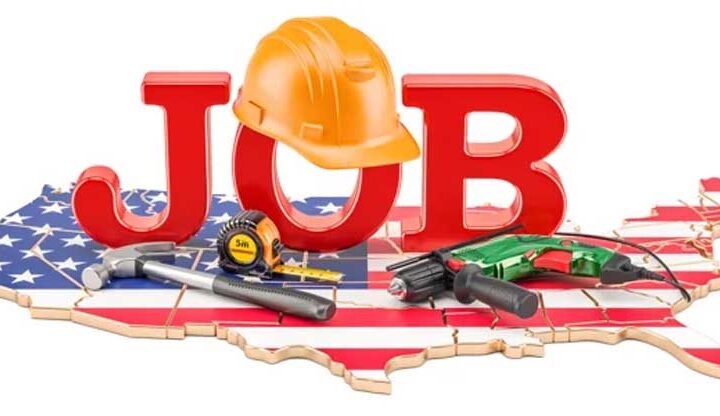A deal for introducing the national minimum wage is under threat, as social partners are drifting apart instead of converging, resorting to cheap shots at each other.
The sides were expected to add the final touches to the proposal for a national minimum wage following months of negotiations with the late Labour Minister Zeta Emilianidou.
However, trade unions blamed the government for going back on their word and employers for introducing last-minute changes.
Employers argued that nothing was set in stone from previous discussions, saying nothing should be taken for granted before a final agreement is reached.
The in-fighting erupted after President Nicos Anastasiades failed to declare the introduction of the national minimum wage, honouring Emilianidou’s memory and hard work.
But agreement on calculating the minimum wage is missing, as unions claim that employers are essentially demanding that negotiations are reset.
Unions, including ruling DISY affiliated SEK, main opposition AKEL affiliated PEO and social democrats DEOK, all said they were disappointed to hear employers table new demands.
The thorniest issue between the two sides is whether the national median wage will be based on the calculations of the statistical service, which are lower than the EU Statistics on Income and Living Conditions (EU-SILC) cross-sectional and longitudinal sample survey.
A minimum wage is to be set at 50% or 60% of the median wage.
However, the Cyprus Statistical Service says the median wage is €1,573, while the EU-SILC European survey calculates it at €1,727, 9% higher than CyStat.
If CyStat’s calculation of the median wage is taken as a base, it could range from €786 to €943.
Unions claim employers are requesting that a larger part of the labour force is excluded from the deal.
Only housemaids and shipping workers were to be excluded.
Meanwhile, PEO is fuming at the government for “going back on the principles it laid out during initial negotiations, giving more ground to employers”.
In comments to the Financial Mirror, the head of the union, Sotiroula Charalambous, argued that the government had gone back on its commitment to a fair minimum wage.
“It is with great disappointment that the artificially cultivated expectations were flatly proven false.
“The meeting at the Presidential Palace brought about a setback and retreat from the government concerning positions that had preceded,” said Charalambous.
She said the government is obligated to intervene with the implementation of a minimum wage, as employers have been taking advantage of the pandemic and inflation boom crises to deregulate the labour market.
“Major violations have been recorded, with employers imposing personal contracts with degrading terms and conditions.”
Talking to Politis radio, Andreas Matsas, the head of DISY-affiliated union SEK, accused the employers’ side of going back on an agreement reached before the late labour minister Zeta Emilianidou sadly passed.
He argued that the union has documentation that the employers’ side had agreed to a formula that would guarantee a minimum wage of around 950, while now they are pushing for a minimum wage of around 800.
‘The President has changed his stance, perhaps after intense pressure.
“In fact, regarding the formula for calculating the minimum wage, the President has proven unreliable, as he is now pushing for the matter to be placed on a different basis.
“That is, a different formula of calculating the minimum wage,” said Matsas.
The Federation of Employers and Industrialists told the Financial Mirror that their understanding was that nothing was concrete.
Lena Panayiotou, head of OEB’s Industrial Relations & Social Policy Department, told the Financial Mirror: “We had not come to an agreement over the formula to be adopted, nor which occupations would be excluded.”
She argued they had openly voiced their opinions on several matters and prepared a document with their disagreements which the organisation did not have the opportunity to submit.
OEB had prepared the letter the day Emilianidou suffered a cerebral aneurysm rupture.
“We do not appreciate the picture that has been drawn portraying that everything was set to go and that all was left for implementing the minimum wage was for an official to come out and announce it,” said Panayiotou.
“We must consider that we are in a period of high inflation pushed up by the war in Ukraine, while the coronavirus pandemic does not seem to be subsiding.”
Panayiotou explained that in times of rapidly fluctuating inflation rates, introducing a minimum wage linked to inflation may not be the soundest thing to do.
Social benefits
Economist Ioannis Tirkides told the Financial Mirror that introducing a national minimum wage makes sense financially and socially and should be introduced as soon as possible.
“From the point of view of social benefits, the introduction of a minimum wage will go a long way in eliminating sharp social inequalities.
“It would be a disgrace to have people living on a minimum wage close to the Minimum Guaranteed Income, which now stands at €480,” said Tirkides.
He argued that introducing a minimum wage would not change business payrolls significantly.
“It will not be killing off profitability.”
Tirkides argued that quite the opposite, introducing a minimum wage would be a sound financial move, as it would push companies to rethink their strategy, detaching their profitability margins with how they manage expenses.
“Instead, businesses should look at ways to increase their profitability by increasing their productivity.
“That would mean turning to research, adopting modern best practices to increase the productivity and efficiency of their workforce and products, rather than looking to push wages down.
“In other words, a minimum wage would force businesses to invest in research and modern methods, leaving behind the ‘old tightening the belt’ techniques.”










